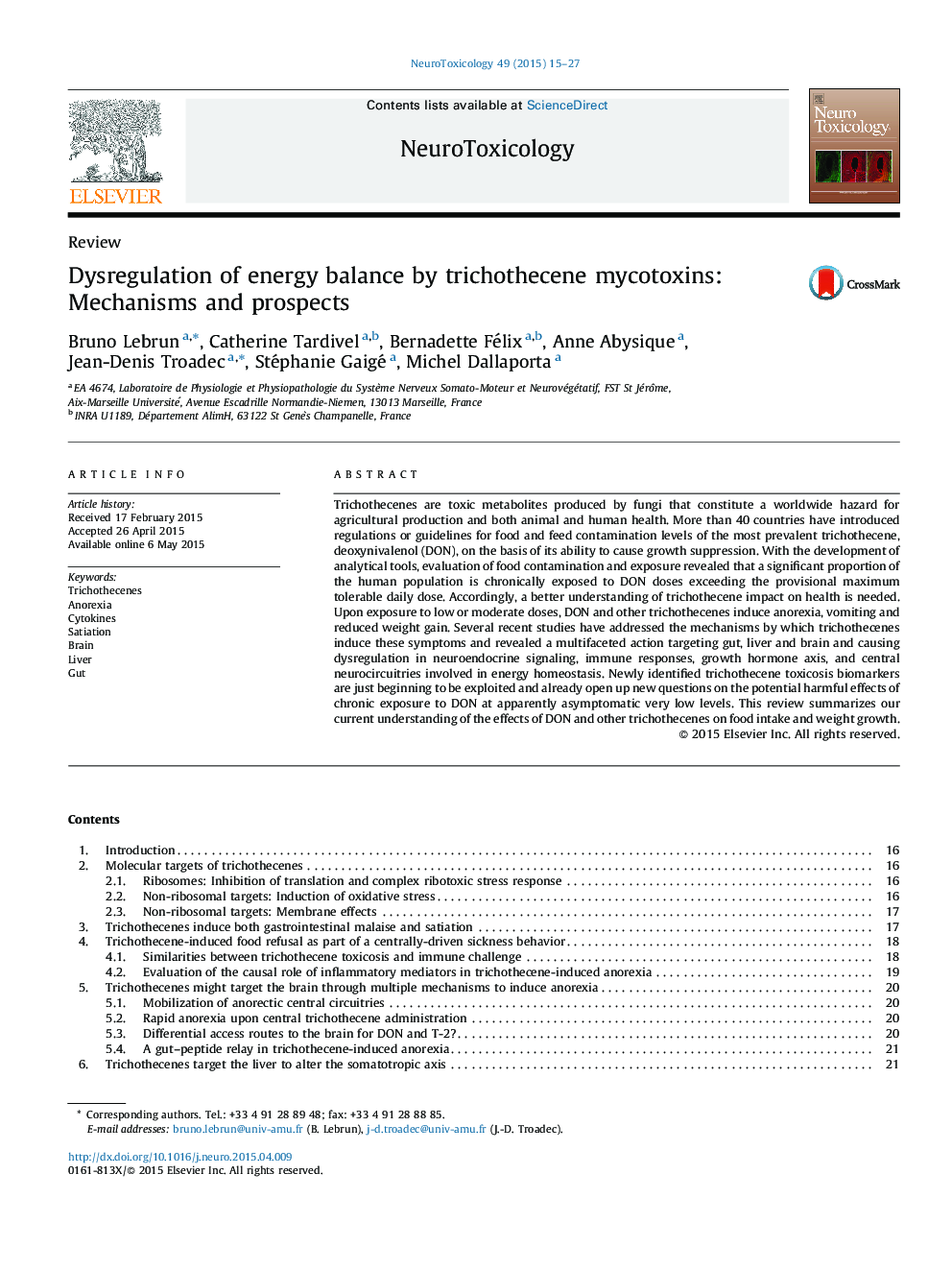| Article ID | Journal | Published Year | Pages | File Type |
|---|---|---|---|---|
| 2589546 | NeuroToxicology | 2015 | 13 Pages |
•Exposure to trichothecenes results in both gastrointestinal malaise and satiation.•Different molecular targets mediate for the trichothecene adverse effects.•Inflammation induced by trichothecene partly explains food refusal.•The brain drives trichothecene-induced anorexia through multiple mechanisms.•Subchronic low dose DON may affect long-term regulation of energy balance.
Trichothecenes are toxic metabolites produced by fungi that constitute a worldwide hazard for agricultural production and both animal and human health. More than 40 countries have introduced regulations or guidelines for food and feed contamination levels of the most prevalent trichothecene, deoxynivalenol (DON), on the basis of its ability to cause growth suppression. With the development of analytical tools, evaluation of food contamination and exposure revealed that a significant proportion of the human population is chronically exposed to DON doses exceeding the provisional maximum tolerable daily dose. Accordingly, a better understanding of trichothecene impact on health is needed. Upon exposure to low or moderate doses, DON and other trichothecenes induce anorexia, vomiting and reduced weight gain. Several recent studies have addressed the mechanisms by which trichothecenes induce these symptoms and revealed a multifaceted action targeting gut, liver and brain and causing dysregulation in neuroendocrine signaling, immune responses, growth hormone axis, and central neurocircuitries involved in energy homeostasis. Newly identified trichothecene toxicosis biomarkers are just beginning to be exploited and already open up new questions on the potential harmful effects of chronic exposure to DON at apparently asymptomatic very low levels. This review summarizes our current understanding of the effects of DON and other trichothecenes on food intake and weight growth.
